#lebanese musician
Text
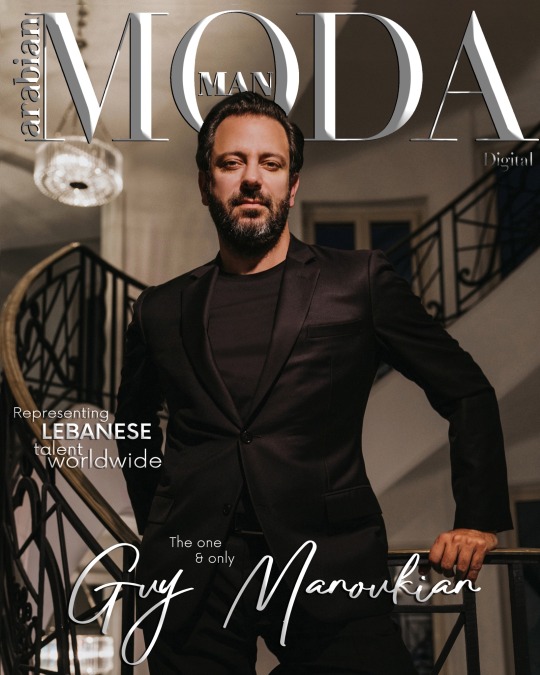
Loud and proud, Guy Manoukian carries the name of Lebanon on the international scene as he performs sold-out concerts at iconic venues like l’Olympia, Her Majesty’s Theater and The Sydney Opera House to name a few.
One of the very first Lebanese musicians to have paved the way for Middle Eastern talent, the master-artist stays true to his oriental heritage and composes universal melodies that captivate a legion of audiences.
During a special appearance in Cannes, Guy Manoukian sat down with Arabian Man Moda and revealed his influences, career learning lessons and ongoing passion for music.
Full story: www.bit.ly/3yZKeM1
#arabianmoda#arabian moda#arabian man moda#guymanoukian#guy manoukian#lebanese musician#lebanese artist
0 notes
Text

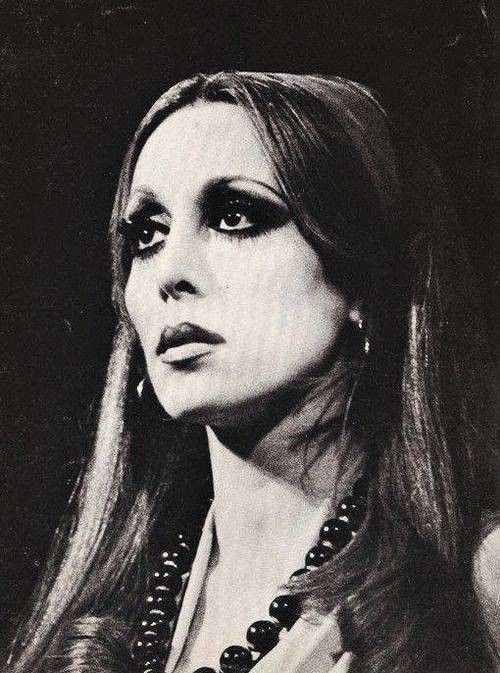
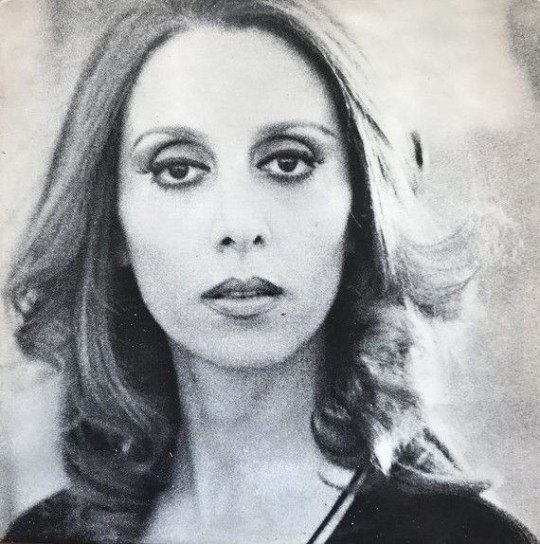


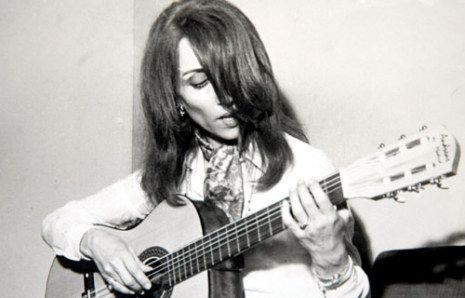
THE Fairuz 🪕
112 notes
·
View notes
Text
i was soo scared to write htis paper but it is seriously one thousand times easier to write this one than the first one
#first one was about lebanese music between wwi and wwii and unsurprisingly. there arent a lot of easily accessible resources.#HOWEVER. DURING THE COLD WAR. OH MY GOD THERES SO MUCH I DONT KNOW HOW TO SUMMARIZE ALL OF IT#barely. holding it together for the last paper but this one . i have so much it will overflow probably. had to support it with trade#patterns and migration . and what not. but I CAN LITERALLY JUST WRITE ABOUT MUSICIANS!!!!!!!!!! its just. interesting how little history we#have conserved on the first topic . AND HOW MUCH MORE WE HAVE NOW. i love history me and my history degree shall be married
2 notes
·
View notes
Photo

Maritta Hallani 🇱🇧
ماريتا الحلاني
maritta
#maritta hallani#musician#lebanese#brunette#white tunic#purple leggings#portrait#seated#pretty#poisonsome
21 notes
·
View notes
Text
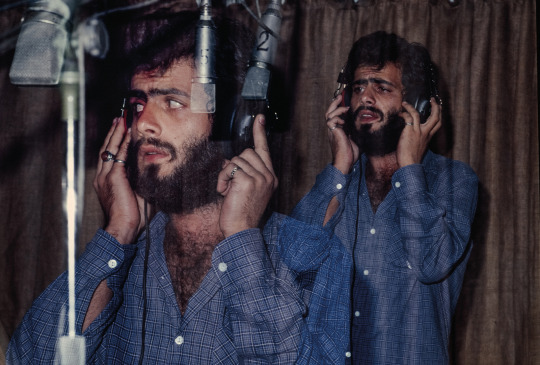

Issam Hajali
7 notes
·
View notes
Text
Happy Pride Month to all my lesbians! But especially...
closeted lesbians
lesbians who hate summer
gnc lesbians
out lesbians in conservative areas/states/countries
divorced lesbians
lesbians who know how to play poker
lesbians with PCOS
butch4butch lesbians
lesbians with a name that always gives them trouble when filling out forms
detrans lesbians
brown lesbians
lesbians raised by their grandparents
lesbians with disabilities
lesbians with chronic pain
fat lesbians
touch deprived lesbians
lebanese lesbians
lesbians in recovery
lesbians who hate seafood
lesbians still in their addiction/disorders
undiscovered musician lesbians
lesbians with kids
older sister lesbians
rural living lesbians
black lesbians
lesbians with a lazy eye
40+ lesbians
intersex lesbians
lesbians who can't/won't drive
lesbians in the trades
lesbians who play softball
lesbians who hate baseball
lesbians with felonies
lesbians with active warrants against them
lesbians with no sense of direction
lesbians under 5'3
lesbians who don't know where their house/car keys are at this very moment.
lesbians who ALWAYS know where their house/car keys are, including at this very moment.
💜MUAH. HAPPY PRIDE.💜
436 notes
·
View notes
Text
Hate to say it but the overlap of "has a fanbase that heavily values their writing abilities" and "has a fanbase that deliberately detaches/miscontrues/borderline insults/fetishizes the singer's identity and inspiration from their artistry in an effort to pretend the music is closer to what the fans think they should be" venn diagram is not only just a straight up circle, but has taken over many of the same musicians and the fandoms overlap with each other to such an extreme extent that it sometimes becomes exhausting to consume any of their music as independent artists and then discuss them, let alone seeing how a lot of these artists have a "collective" fanbase that treats them all so bizzarely. Like do y'all not see the pattern with how you always feel some need to focus on certain "nicer" aspects of musicians' identities and entirely disregard others, or be all weird about it when you do acknowledge it? I'll provide examples, hopefully you'll see what I mean.
Tamino is an Egyptian and Lebanese man, at the same time he is Belgian, and that influences his art and it's so weird to just focus just on Persephone and his more "western" songs, or compare his nose to just a bunch of western white men. Hozier is Irish and inspired by Black American musicians who make political music and it's weird when you guys pretend he's just the fairy bog boy, which tbh you also likely wouldn't be saying if he was from Pennsylvania or Manchester or whatever, you're absolutely doing it with him because he is Irish, plenty of other artists write nature themes and don't get that weirdness put on them, you're doing it because he is Irish. Ethel Cain is a Southern American and writes from that very specific experience and has religious themes that influence her music and isn't just some "backwards" "hick" "redneck" (in a derogatory, insulting sense) girl that a lot of you clearly view "people like her" down south as. Måneskin has written in English since the beginning of their career, clearly takes inspiration from English and American musicians, and isn't entitled to write in Italian just because you think they should or because their native language ~fascinates~ you as an english speaker. Mitski often writes from a very VERY obvious perspective of being an Asian American woman and yet so many of you pretend that her songs about that experience are innately applicable to all of womanhood when they clearly aren't. They just aren't. They are about her experience as an ASIAN AMERICAN woman.
There are other artists y'all do this sort of shit to too (mainly Black ones!!) and it's absolutely annoying as shit to see that you can't just appreciate their identities for what they are and still need them to be closer in proximity to you and your identity or needs to "fulfill" something for you as an outsider, to the point of being delusional about the fact that this is all first and foremost their music and that it operates with their identities and they're all fantastic writers because on various levels they're being vulnerable about their identities and selves. That's not to say you can't pull your own meaning from the songs they write or whatever, but when discussing the artists themselves a lot of you are showing your asses with how you view "people like that" and how even though you're not being weird or bigoted in an obvious, deliberately mean sort of way, a lot of you still have shit to unpack and look at before you engage with them and their stuff. I mean Jesus christ even the most surface level understanding of erasure, fetishizing, and sterotypes can show what y'all are doing subconsciously, I'd hate to see how you talk about these people's identities when it's someone you don't see as both a product yet (parasocially) a friend, but is instead someone you hate.
92 notes
·
View notes
Note
do you have any palestinian fcs to rec, in light of recent events?

𝙝𝙞 𝙗𝙖𝙧𝙗𝙞𝙚! absolutely i do!! will leave the rest of this space mostly free of comments except to say #freepalestine ♡
Adam Bakri ( 1988, actor, Palestinian )
Adham Nabulsi ( 1993, musician, Palestinian )
Anwar Hadid ( 1999, model, half Palestinian )
Bella Hadid ( 1996, model, half Palestinian )
Bilal Hasna ( 1999, actor, half Indian && half Palestinian )
Daniela M. Biah ( 1993, influencer, half Mexican && half Palestinian )
Dawn Zulueta ( 1969, actress, three quarters Filipino && one quarter Palestinian )
Dina Denoire ( 1998, influencer, half Egyptian && half Palestinian )
Dina Shihabi ( 1989, actress, one quarter each Saudi && Palestinian )
Eric Saade ( 1990, musician, half Palestinian )
Fai Khadra ( 1991, influencer, Palestinian )
Gigi Hadid ( 1995, model, half Palestinian )
Haifa Beseisso ( 1990, influencer and musician, Palestinian )
Josie Totah ( 2001, actress, half Palestinian and one quarter Lebanese, trans )
Juan Riedinger ( 1981, actor, one quarter each Palestinian && Peruvian )
Kamel El Basha ( 1962, actor, Palestinian )
May Calamawy ( 1986, actress, half Egyptian && half Palestinian )
Michael Malarkey ( 1983, actor, one quarter Palestinian )
Mohammed Amer ( 1981, comedian and actor, Palestinian )
Mohammed Assaf ( 1989, musician, Palestinian )
Mousa Kraish ( 1975, actor, Palestinian )
Sandra Haj ( 1998, musician, Palestinian )
Sofia Carson ( 1993, actress, half mixed Arab && part Colombian )
Subhi Taha ( 1992, influencer, half Filipino && half Palestinian )
Talleen Abu Hanna ( 1994, model, Palestinian, trans )
Yacoub Shaheen ( 1994, musician, Palestinian )
Yasmine Al Massri ( 1978, actress, half Egyptian && half Palestinian )
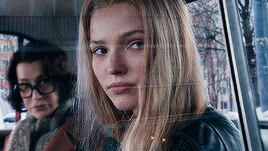
#rpc#rph#palestinian fc#palestinian fcs#fc help#female fc#male fc#trans fc#arab fc#underused fc#model fc#poc fc#bipoc fc#fchelp#arabian fc#fc masterlist#answered: fc help#five nights at freddi's: mascot post#answered: anonymous#answered#long post for ts#long post cw#long post
69 notes
·
View notes
Note
this might be a weird question but would it be weird for someone who's not palestinian to make art about/for palestine?
It's not weird AT ALL! Fairuz, the musician I sometimes talk about and who I based my URL off of, is Lebanese and she has a whole album dedicated to Palestine!
So feel free!!! Write and sing and draw and film!!! We love when we see people love our land and culture <3
51 notes
·
View notes
Text
Walk down Washington Street in Lower Manhattan between the Battery Parking Garage and Albany Street, and you’ll see virtually no signs that this area was once home to one of the largest communities of Syrians in the United States. Groups [...] have worked tirelessly to preserve the three remaining buildings [...] that stood during the heyday of New York City’s “Syrian Quarter,” or Little Syria. [...] From 1890 to 1940, Little Syria stood as the mother colony to Syrian and Lebanese communities across the United States. The three-block radius around Washington and Rector was home to newspapers, magazines, restaurants, jewelry shops, banks, barbers, grocers, churches, a mosque, record stores. [...] This was the Mahjar, America’s Arab diaspora. [...]
Tucked within these streets were three Arab American record labels -- Maloof Phonograph Company in the 1920s and 1930s, A.J. Macksoud’s Phonograph Company from the 1910s to the 1930s, and Alamphon Records in the 1930s and 1940s -- now among the most recognizable to record collectors.
---
These labels filled an important cultural gap -- by the 1920s, the US’ two big phonograph record companies, Victor and Columbia, cut back on recording and selling Arab music. And while companies like Beirut-based Baidaphon recorded Syrian and Egyptian musicians and sold their records at home [...]in the early 1900s, by the 1910s that was changing. Mahjari musicians in the United States began to record music themselves, for mahjari audiences.
The music that New York City’s mahjari artists performed from the 1910s through the following 30 years included recorded poems, folk songs from the homeland and original compositions telling of loss, love, [...] and favorite foods from home; the names, tunes, beats and rhythms connected them to their roots and shaped their nostalgia for what they had left behind. There was much to miss, even before leaving what was then known as Ottoman Syria: today’s Lebanon, Syria, Jordan and Palestine. The region’s silk industry and other trades were in decline. Political instability and poverty were on the rise. Thousands of former Ottoman subjects soon found themselves in New York City, Boston, Detroit. [...]
---
[T]he performing and literary arts movement that gripped Egypt and Greater Syria during the late 19th and early 20th centuries. That movement was the Nahda, the Arab Renaissance.
The arrival of immigrants from Greater Syria coincided with a boom of gramophone machines, phonograph cylinders and flat-disc records.
And as Arab musicians in Cairo and Beirut recorded music throughout the 1890s and 1900s, thousands of miles away in Little Syria a precocious Alexander Maloof began composing and publishing music for the piano. [...] From a young age, Maloof listened to traditional Arabic music such as mawwal, Arab folk music forms such as the ataaba, and experimented with fusing these with American marches, fox trots, and ragtime.
Meanwhile, by 1907, 29-year-old musician Abraham J. Macksoud, now using the moniker A.J. Macksoud, opened a phonograph record store in Little Syria. [...] Columbia and Victor had already begun to record the songs of mashriqi musicians back home [...], but as late as 1911, no Arab or Ottoman immigrant to the US had recorded specifically for a mahjari audience. That was about to change.
---
On 24 July 1913, Alexander Maloof, now a well-accomplished songwriter and composer, recorded the piano solo B 13834-1, #17443 Al-Ja-Za-Yer (“Algeria”) for the Victor Talking Machine Company. With Maloof's song, Mahjari musicians had now found a home for recording their music. [...]
The number of Syrian Muslims to emigrate to the United States remained relatively small during the first wave of emigration from 1880 to 1941. Still, in 1916, Columbia recorded one of only a few Syrian Muslim immigrants, Mohamed ZainEldeen. Born in Homs, Syria in 1892, ZainEldeeen arrived in New York in May 1912. By the fall of 1916, he had cut seven songs on six double-sided discs for Columbia [...]. As the number of Arab immigrant and Arab American musicians grew on Columbia and Victor’s rosters, A.J. Macksoud moved and opened two new record shops at 52 Broadway and 89 Washington Street. [...]
---
The 1920s marked the era when Victor and Columbia lost their monopoly on lateral-cut recording technology, but it is also the period they slashed efforts to record and issue new Arabic-language music. To fill in the gaping hole left in the industry, [...] pianist and composer Alexander Maloof established his own record label. He kept up a break-neck pace appearing on radio, running his record label, composing songs and selling sheet music to publishers.
In October 1923, Maloof finally recorded his “Egyptian Glide” and a second track, “Pharaoh,” on his label’s pressing company, Gennett Records. And despite its long hiatus of recording Syrian American artists, in 1926 the Victor Talking Machine Company even brought Maloof back into the studios, this time with his larger orchestra, to record “Desert Wail” and “Kurdistan.” [...]
On his self-titled label, Maloof recorded former Victor recording artist Ilyas Wardiny, who became one of the label’s most popular singers. [...]
---
Farid Alam al-Din (anglicized Fred Alam) founded the last of Little Syria’s record labels. For years, historians, ethnomusicologists, and even the most experienced scholars presumed Maloof and Macksoud shared the position of Washington Street’s only Arab American record labels headquartered in the heart of Manhattan.
But as the Great Depression saw Maloof and Macksoud shut down their labels by 1935, Fred Alam opened his store and launched his Alamphon Record label from 81 Washington Street.
---
By then, Little Syria as a whole was already in some form of decline. Whether Alam bought out A.J. Macksoud’s inventory or launched his store anew, a 1935 newspaper article read:
"The Syrian quarter of the town, which for years boasted one of the country’s greatest rag centers, has practically vanished. What remains is in Washington Street down by the Battery. One of the best known is Alfred Alam’s Oriental gramophone record shop. Alam’s phonograph record business is perhaps the only business of its kind not diminished by the radio. [...]”
Little Syria’s Nile Restaurant and the Son of the Sheik restaurant commanded special attention, as did Alfred Alam’s shop. The paper noted “the piles of Egyptian and Syrian Phonograph records at A. Alam’s store. [...]” And yet, that same article also reported the changes that would soon mean Little Syria’s demise, as development and urban renewal programs took hold in Manhattan's Lower West Side.
The construction of the Brooklyn-Battery Tunnel in the 1940s meant the destruction of the tenements that once housed thousands of new immigrants and Syrian Americans. The buildings that contained many of the community’s businesses and meeting places steadily disappeared, never to return. [...]
Few traces remain, except the music records that subsequently scattered across the US, from owner to owner.
---
Text by: Richard M. Breaux. “Songs of nostalgia in New York City’s long-lost ‘Little Syria’“. SyriaUntold. 5 March 2021. Article part of SyriaUntold’s ongoing series on Syrian music. [Bold emphasis and some paragraph breaks/contractions added by me.]
96 notes
·
View notes
Note
I have a question about music! I want to get more into Arabic music (women specifically) but the only Arabic musician I know of right now is Faouzia, who is AMAZING, however she doesn’t have a lot of music in Arabic. She uses cultural inspiration in her music (she’s Moroccan), but only has a couple songs with one Arabic word in it (Habibi & Puppet). I like listening to music in other languages and was hoping maybe you had recommendations for Arabic female musicians
never heard of faouzia! thanks for informing me of her. and yes im gonna first name some famous arabic pop singers and then ill move onto some that i also like:
nancy ajram
this woman is probably one of the biggest popstars in the arab world and has been for decades. she has a lot of great hits and id honestly just recommend going thru her music esp her older stuff bc you might like something in there. shes a lebanese christian
youtube
2. haifa wehbe
not a fan of hers but she has some hits and shes also one of the most renowned popstars.
youtube
3. myriam fares
also one of the bigger popstars, she also tends to play with a lot of arabic genres. shes mostly known for her dancing i think, shes quite talented but im not big on her music (im just sharing my faves btw so this is one of my faves and its clearly awful quality)
youtube
4. ruby
i looooooove ruby she was basically the only dark-skinned woman i saw in mainstream arab media and shes an awful dancer but makes amazing music and is also an actress (and ive heard shes quite good at that too) and is a good singer. also afaik shes one of the few female artists that didnt get plastic surgeries (if she did its so mild that its not noticeable). shes egyptian (previous singers i shared are all lebanese)
youtube
5. shadia mansour
one of the only female rappers i know of, i dont know much of her music but this song is really good and the lyrics are amazing. shes palestinian & british and this song is about palestinian resistance basically
youtube
6. elyanna
this one is more modern than my other recommendations fhsdfhds but shes quite good, iirc shes half palestinian half..chilean? i think?
youtube
7. samira said
shes north african, i Think tunisian, and one of the bigger popstars from the 2000s. i dont really listen to most of her music but this one's a classic:
youtube
8. fairuz
this one's quite old-fashioned but definitely a classic and her music continues to be played a lot today... especially by lebanese people. shes a lebanese singer who i think was really prominent for decades starting from the 50s. not sure how her music will be perceived by someone who didn't grow up hearing it tho. shes also lebanese christian
youtube
9. luka salam
only know one song of hers but its a nice one, the lyrics are great and i was obsessed with it at one point. i know shes got others. idk where shes from tbh
youtube
10. maryam saleh
i only know one song of hers too but its also a nice one. shes egyptian
youtube
adding more in reblogs bc i ran out of links to add lol
22 notes
·
View notes
Note
I hate it when people criticise some falastini celebrities for not saying anything. They have the right to be terrified. Have you seen what the Israeli have been saying about Bella and Gigi Hadid? Even though Dua Lipa and Mia Khalifa aren’t Falastini, they are Albanian and Lebanese respectively, and they have been targeted as well. Saint Levant, a Palestinian/French/Algerian/Serbian musician is also being targeted by Israel now.
An actor by the name of Michael Karim Malarkey is a Palestinian Lebanese who was raised in Britain, was on this show called The Vampire Diaries and majority of his coworkers are Zionists. The most prominent Zionist was his former friend Nate Buzolic who repeatedly calls him a terrorist and tags him in anti Arab sentiment stuff and also said something along the lines of “to be a real Christian, you have to be a little Islamophobic”
So I don’t blame any Falastini celebrities for being afraid right now
we must try protecting and showing our support for the people in danger right now. none of those people should be harmed for being on the right side of history. i pray for their safety
12 notes
·
View notes
Text
Don't know if anyone will see or care about this but I just wanted to share with the world my deep love for the masterpiece that is the album Ahmad Al Arabi
It has been a part of me since my childhood and now that I've grown up I realise just how great it is and I want to share it with the world. I don't think any other music and lyrics together make me feel like this one does.
Ahmad Al Arabi is an orchestral album so it's a cohesive storyline, both when it comes to the music and to the lyrics. I recommend listening to it together since it's basically listening to a concert.
Even if you do not understand a word of arabic (although there are many translations online), I believe that music like this trascends all languages and you can feel it in your soul any way.
Darwish's poetry is a way to engage with Palestinian resistance through art, so I wanted to start posting about the songs on this album, sharing the words and the music. I hope that someone out there will try and listen to it, maybe discover new artists, or maybe remember childhood memories like me.
I may or may not have chosen to start with this one because my name is Yasmine...
اذهب عميقا
اذهب عميقا في دمي
واذهب عميقا في الطحين
لنصاب بالوطن البسيط
وباحتمال الياسمين
محمود درويش
Go deep into my blood,
Go deep into the bread,
So that we will have
A simple homeland
And a dream of jasmine yet to come...
youtube
A poet by Palestinian poet, Mahmood Darwish (1941-2008)
Translation by Umfalastin
Music by Lebanese musician, oud player and composer Marcel Khalife
#marcel khalife#mahmoud darwish#mahmood darwich poetry#ahmad al arabi#mahmood darwish#palestine music#palestinian music#´#palestinian art#stand with palestine#arabic#arab#arab music#arab poetry#music#orchestral music#falasteen#falastin#go deep#Youtube#arabic poetry#arabic poems#arabic art#palestinian poetry#palestinian literature#poetry#poetic
5 notes
·
View notes
Text
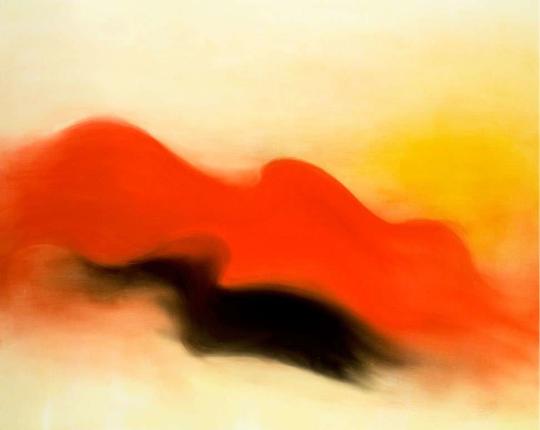
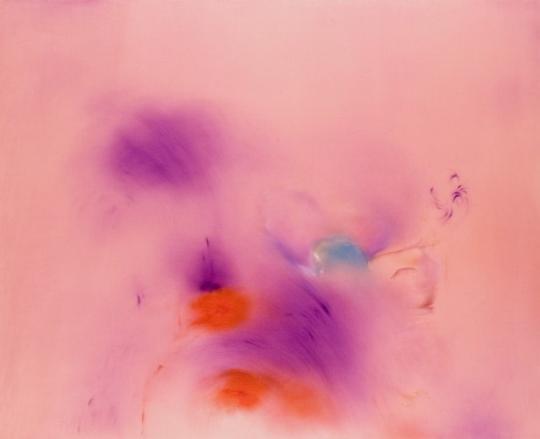
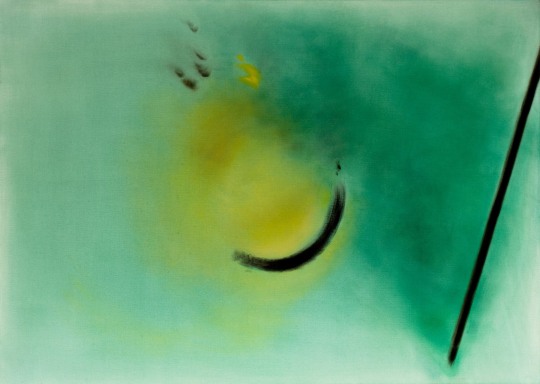
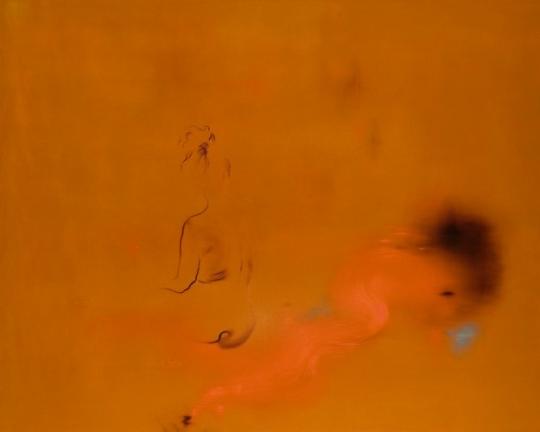
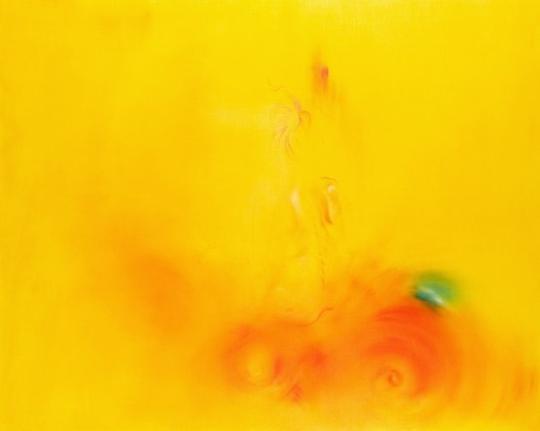
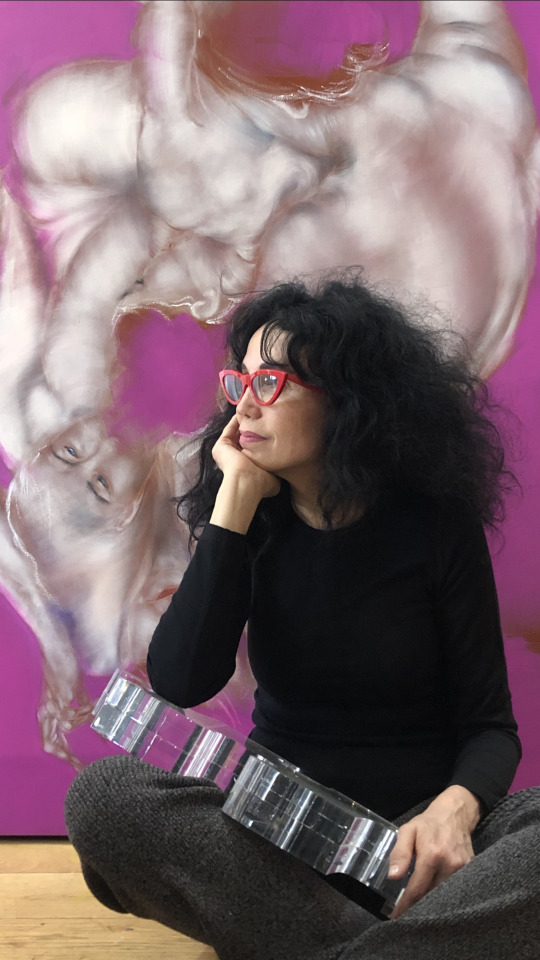
Mouna Rebeiz paints music.
Mouna Rebeiz is a Lebanese-Canadian painter based in London. She grew up surrounded by musicians, painters and poets, who influenced her art. Fascinated by human psyche, she studied psychology at the Sorbonne and at Saint Joseph University in Beirut.
She travelled extensively, and then in 1995 met Alix de la Source, a lecturer at the Louvre specialising in 18th-century painting., who taught her about the techniques of the great masters. She perfected her mastery of patinas in the Renaissance courses, and studied with Abraham Pincas, a painter and teacher at ENSBA Paris, and with Mohamed El Rawas, a Lebanese painter and engraver teaching at the fine arts school in Beirut.
https://www.meer.com/.../70937-artist-mouna-rebeiz-at-la...
22 notes
·
View notes
Text
Hi! Since I've been listening to a lot of North African and middle eastern artists lately I thought about making a bunch of posts where I talk about musicians that I found interesting. Each post will be about a specific artist from a specific country. The first three posts though will focus on Lebanese musicians. Not sure if it'll interest you but I'd appreciate if you give these posts a read! :)
A trip through Arabic music, Part 1: Lebanon
ISSAAM HAJALI
Issaam started his career in a local progressive rock band named Rainbow Bridge. When the war broke out in Beirut in 1975, him and his friend Rogér Fakhr (another relevant lebanese musician) fled to Paris where they continued working on their music. His debut album "Mouasalt Ila Jacad El Ard" was published in 1977 and was based on the works of the revolutionary Palestinian poet Samih Al-Quasim.
One of Hajali's most popular songs can be translated to "I, The Conscience Of The Speaker" and it's about, of course, resistance. During his musical career Issaam would made his political alignment very clear (he considered himself an ultra-leftist) and strongly condemned the actions of the Israeli army against the palestinian refugees in Beirut at the time.
(my favourite song so far!)
However, he slowly abandoned his career to focus on his family and now owns a jewelry shop in the capital.
11 notes
·
View notes
Photo
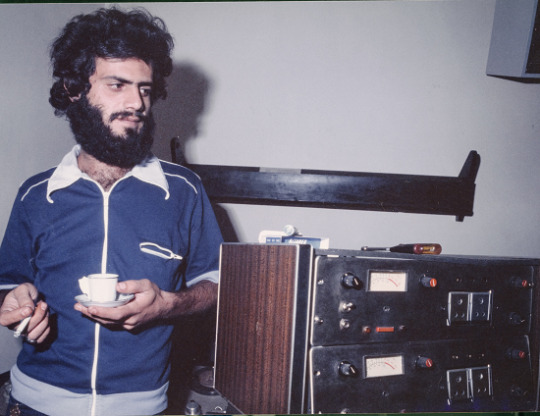
Lebanese jazz & folk rock musician Issam Hajali
#love his music so much#there's so little out there about him#if anyone knows the source of this photo or date#that isn't from the guardian article i stole it from#issam hajali#folk rock#music#jazz#folk music#70s folk#70s rock
82 notes
·
View notes